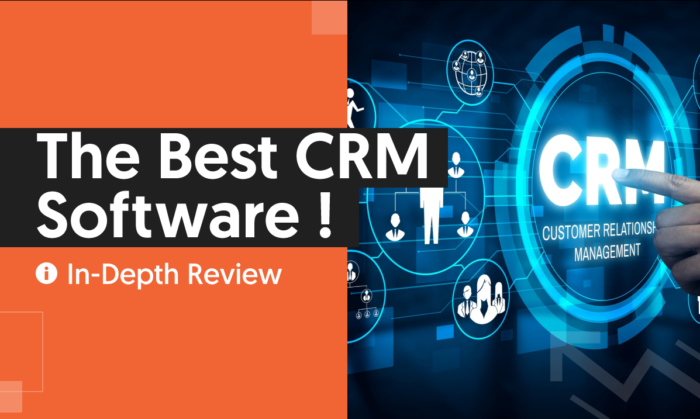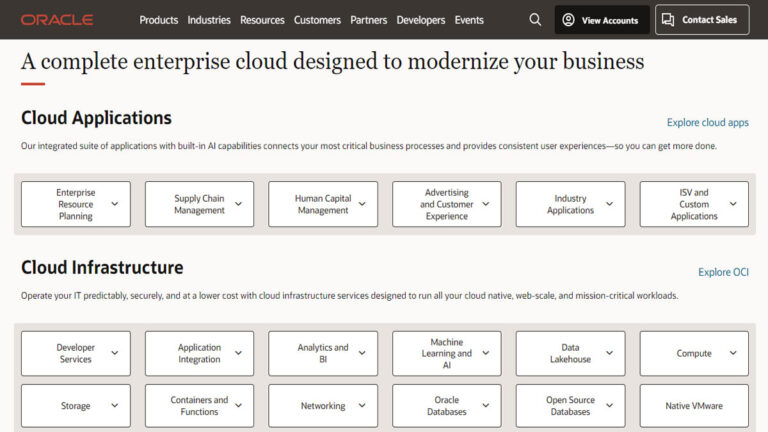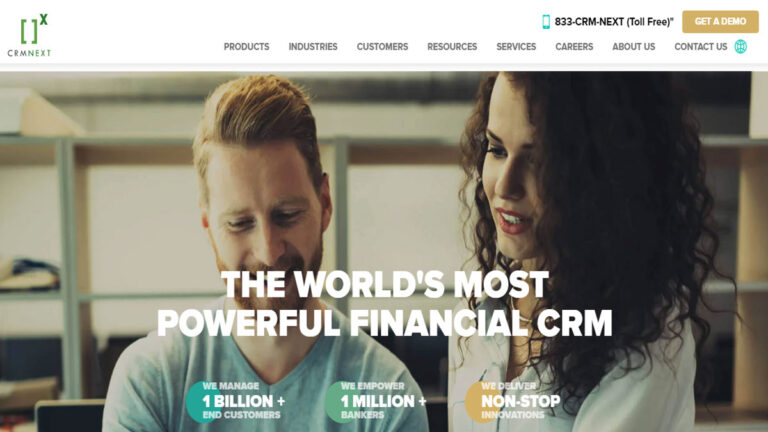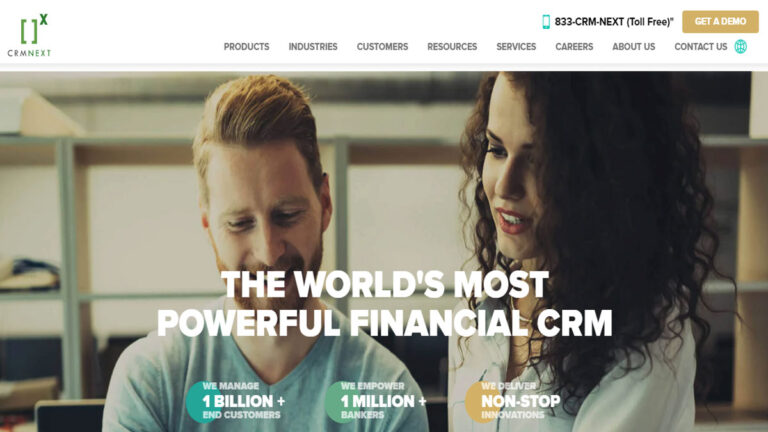Choosing the right Customer Relationship Management (CRM) software is crucial for any business looking to streamline operations and enhance customer relationships. This guide delves into the intricacies of selecting the best CRM, exploring various types, features, and considerations to help you make an informed decision.
From defining CRM’s purpose and identifying key evaluation criteria to comparing top solutions and analyzing emerging trends, this comprehensive overview provides a structured approach to navigating the CRM landscape. We’ll examine factors like scalability, integration, and customization options, offering practical insights tailored for diverse business needs.
Defining CRM and its Purpose

Customer Relationship Management (CRM) software is a powerful tool designed to streamline and optimize interactions with customers. It centralizes customer data, allowing businesses to better understand their clients and improve overall customer service. This, in turn, leads to stronger customer relationships and increased profitability.A CRM system acts as a central hub for all customer-related information, including contact details, purchase history, support tickets, and communication logs.
Its core functionalities revolve around managing customer interactions, automating tasks, and fostering stronger customer relationships. Ultimately, the goal is to improve customer satisfaction, increase sales, and boost overall business performance.
Core Functionalities of a CRM System
CRM systems encompass a wide range of functionalities. They enable businesses to track customer interactions across various touchpoints, automating processes like lead generation, sales management, and customer support. Data analysis features within CRM software allow businesses to gain valuable insights into customer behavior and preferences, ultimately leading to more effective marketing strategies and personalized customer experiences.
Types of CRM Systems
Different types of CRM systems cater to specific business needs and objectives. These systems are categorized broadly as operational, analytical, and collaborative.
- Operational CRM systems focus on automating and streamlining business processes, such as sales, marketing, and customer service. These systems aim to improve efficiency and productivity by automating repetitive tasks, tracking customer interactions, and providing insights into customer behavior. Examples include Salesforce Sales Cloud and HubSpot CRM.
- Analytical CRM systems concentrate on extracting insights from customer data. They utilize data mining, statistical modeling, and reporting tools to identify patterns, trends, and customer segments. This allows businesses to understand customer needs and preferences better, ultimately leading to more effective marketing strategies and personalized customer experiences. Examples include Tableau CRM and Power BI.
- Collaborative CRM systems are designed to facilitate communication and collaboration between different departments within an organization, as well as with external partners. They aim to improve communication and streamline processes across the organization, fostering better customer relationships. Examples include Microsoft Dynamics 365 and SAP CRM.
Key Benefits of Implementing a CRM System
Implementing a CRM system offers numerous benefits for businesses of all sizes. These include increased sales, improved customer service, and enhanced customer retention. The ability to track customer interactions across different channels allows businesses to gain valuable insights into customer behavior, leading to more effective marketing campaigns. By centralizing customer data, CRM systems reduce redundancy and improve data consistency.
Comparison of CRM Categories
| CRM Category | Primary Features | Use Cases |
|---|---|---|
| Operational CRM | Automation of sales, marketing, and customer service processes; Contact management, lead tracking, opportunity management; Order processing; Reporting and analytics | Sales force automation, marketing campaign management, customer service ticket management, order fulfillment |
| Analytical CRM | Data mining, statistical modeling, reporting; Customer segmentation, trend analysis, predictive modeling; Identification of customer needs and preferences | Market research, customer segmentation, sales forecasting, customer lifetime value analysis |
| Collaborative CRM | Communication and collaboration across departments and external partners; Integrated communication channels; Real-time data sharing | Customer service ticket management, internal team collaboration, partner relationship management |
Identifying Key Criteria for Evaluating CRM Software

Choosing the right CRM system is crucial for a business’s success. A poorly implemented or inappropriate CRM can hinder productivity and customer relationships. Carefully evaluating potential software based on specific needs and business context is vital for a successful implementation.Selecting the best CRM requires a thorough understanding of the business’s requirements and the features of available systems. Consider factors like the size and structure of the organization, anticipated growth, and the complexity of the sales process.
Essential Features for a Successful CRM Implementation
A successful CRM implementation hinges on the right set of features. These features should seamlessly integrate with existing business processes and empower staff to efficiently manage customer interactions. Crucially, they should improve overall customer satisfaction and drive sales.
- Contact Management: Effective contact management allows for comprehensive data storage, enabling businesses to track interactions with clients, manage leads, and nurture customer relationships. This includes details like communication history, purchase history, and preferences.
- Sales Force Automation: Automating tasks such as lead qualification, opportunity tracking, and sales forecasting enhances efficiency and reduces manual effort. This can dramatically improve the sales team’s productivity.
- Marketing Automation: Marketing automation tools streamline marketing campaigns, allowing for targeted communication and personalized customer experiences. This boosts campaign effectiveness and reduces wasted resources.
- Reporting and Analytics: Robust reporting and analytics features provide insights into sales performance, customer behavior, and campaign effectiveness. These insights drive data-driven decision-making, enabling businesses to optimize strategies.
Scalability, Integration, and Customization Options
The ability of a CRM system to adapt to future growth and integrate with existing systems is paramount. Customizable features allow businesses to tailor the system to their specific needs. Flexible solutions are vital for long-term success.
- Scalability: The system should accommodate future growth, handling increased data volume and user base. Consider how the CRM will scale with your business’s projected expansion. For example, a small startup may need a basic system, while a rapidly growing enterprise will require a scalable solution.
- Integration: Seamless integration with existing systems, such as accounting software or e-commerce platforms, is crucial. This avoids data silos and improves efficiency by streamlining workflows. Consider how the CRM will integrate with your current tools.
- Customization: The CRM should be adaptable to specific business processes. Customization options allow tailoring the system to unique workflows and requirements. A highly customizable system allows for the greatest flexibility.
Specific CRM Needs for Different Business Types
Different business types have distinct CRM requirements. Consider the specific needs of your business model when evaluating potential systems.
- Small Businesses: Small businesses prioritize ease of use and affordability. They typically require basic contact management, sales automation, and reporting features. Consider solutions designed for simplicity and affordability.
- Medium-Sized Businesses: Medium-sized businesses need features for managing a larger customer base and complex sales processes. They often benefit from advanced reporting and analytics capabilities and scalable solutions.
- Large Enterprises: Large enterprises require robust CRM systems capable of handling massive amounts of data and complex integrations. They benefit from advanced customization and comprehensive analytics features. Consider enterprise-grade solutions with robust security measures.
CRM Feature Importance by Business Size
The importance of specific features can vary based on business size. This table Artikels essential features and their relevance for different business types.
| Feature | Small Business | Medium Business | Large Enterprise |
|---|---|---|---|
| Contact Management | High | High | High |
| Sales Force Automation | Medium | High | Very High |
| Marketing Automation | Low | Medium | High |
| Reporting & Analytics | Low | Medium | Very High |
| Scalability | Medium | High | Very High |
Comparing and Contrasting Top CRM Solutions
Choosing the right CRM software is crucial for a business’s success. A robust CRM system streamlines sales processes, enhances customer relationships, and provides valuable insights into customer behavior. Comparing different solutions helps businesses identify the best fit for their specific needs and budget.Understanding the strengths and weaknesses of various CRM platforms is vital for informed decision-making. This includes evaluating pricing models, user experience, technical support, and maintenance aspects to ensure a seamless integration into existing workflows.
Analyzing user reviews and testimonials provides valuable perspectives on real-world experiences with different CRM solutions.
Strengths and Weaknesses of Popular CRM Software
Different CRM platforms cater to various business needs and sizes. Some are better suited for small businesses, while others excel in managing complex sales processes for larger enterprises. Identifying the specific strengths and weaknesses of each platform is crucial for aligning the solution with the company’s requirements. For instance, a CRM with advanced analytics capabilities might be advantageous for businesses seeking detailed customer insights, but may be overkill for a smaller company.
- Salesforce excels in its comprehensive suite of features, including robust marketing automation tools and extensive customization options. However, its complexity and high price point can be barriers for smaller businesses.
- HubSpot is known for its user-friendly interface and affordable pricing tiers. While its features are generally less comprehensive than Salesforce, it provides excellent value for small businesses and startups. The free version of HubSpot offers basic functionalities that can be expanded upon as the business grows.
- Zoho CRM provides a wide array of functionalities, including sales, marketing, and customer support tools. It is often praised for its ease of use and affordability, making it a suitable choice for businesses of various sizes. However, the customization options might be limited compared to other enterprise-grade CRMs.
Pricing Models of Different CRM Solutions
Understanding the pricing structures of various CRM platforms is crucial for budget planning. The pricing models can range from freemium options with limited features to custom packages tailored to specific needs. Companies should carefully evaluate the cost-benefit analysis of each option to determine the most effective approach.
- Salesforce offers a tiered pricing structure, with costs increasing based on the chosen features and user licenses. This flexibility can be beneficial for businesses with complex needs but can be daunting for businesses without an in-depth understanding of the required features.
- HubSpot offers a freemium model with basic functionalities, allowing users to upgrade to paid plans as their needs evolve. This offers a lower barrier to entry compared to other CRMs, making it attractive for startups and small businesses.
- Zoho CRM offers a variety of pricing plans, including a free plan for basic needs. The pricing structure is generally considered more affordable than Salesforce, allowing a greater number of users to leverage the CRM’s features without an enormous investment.
Ease of Use and User Experience
The user experience of a CRM system significantly impacts its adoption rate and efficiency. A user-friendly interface and intuitive navigation are crucial for maximizing productivity and minimizing training time.
- Salesforce, while powerful, can have a steep learning curve due to its complex interface and vast feature set. Extensive training and support might be required for optimal usage.
- HubSpot is known for its user-friendly design and intuitive navigation, making it relatively easy for users to adopt and become proficient. Its clean interface is designed for seamless use.
- Zoho CRM is generally considered easy to use, with a straightforward interface that makes it accessible to users with varying technical skills. It typically requires less extensive training than Salesforce.
Technical Support and Maintenance
Reliable technical support and maintenance are essential for ensuring a CRM system functions optimally. Prompt responses and effective troubleshooting are crucial for maintaining productivity.
- Salesforce provides extensive support resources, including online documentation, FAQs, and dedicated support teams. However, the support cost can vary depending on the plan.
- HubSpot offers excellent customer support, with readily available online resources and responsive support channels. It prioritizes support for its user base.
- Zoho CRM offers a combination of online resources, FAQs, and support channels. It is often praised for its responsive and helpful support staff.
Comparison Table of Popular CRM Solutions
| CRM Solution | Pricing | Key Features | User Reviews |
|---|---|---|---|
| Salesforce | Tiered, starting from $25/user/month | Extensive features, robust analytics, customizable dashboards | Generally positive, but some users cite high cost and complexity |
| HubSpot | Freemium, starting from free | User-friendly interface, comprehensive marketing automation tools | Positive reviews highlighting ease of use and affordability |
| Zoho CRM | Varied plans, starting from free | Wide range of features, strong customer support | Positive reviews focusing on ease of use and value for money |
Case Studies and Success Stories
Real-world implementations of CRM systems demonstrate their potential to significantly enhance business operations. Successful implementations showcase how CRM software can be tailored to various industries and company sizes, ultimately driving growth and profitability. These case studies highlight not only the positive outcomes but also the critical factors for successful CRM deployment.
Successful CRM Implementations Across Industries
Various industries have successfully implemented CRM systems, achieving measurable improvements in sales, marketing, and customer service. Analyzing these implementations provides valuable insights into the best practices and potential pitfalls associated with CRM adoption.
Retail Sector Successes
Retail businesses, often dealing with high volumes of transactions and diverse customer interactions, can significantly benefit from CRM. A well-implemented CRM system can effectively manage customer data, track purchase history, and personalize marketing campaigns. This leads to increased customer retention and improved sales conversion rates. For example, a clothing retailer leveraging CRM might segment customers based on past purchases and tailor marketing emails with relevant product recommendations.
Challenges and Solutions in Implementing CRM
Implementing a CRM system is not without its challenges. Companies may face data migration issues, user resistance to adopting new processes, and the need for significant training. Addressing these challenges head-on is crucial for successful CRM deployment. For instance, clear communication and comprehensive training programs can help mitigate user resistance, while careful data migration strategies can minimize data loss and ensure accuracy.
Table of Successful CRM Implementations
| Industry | Challenges Faced | Solutions Implemented | Impact |
|---|---|---|---|
| Retail (Clothing) | Data silos, lack of customer segmentation, ineffective marketing campaigns | Integrated CRM system, customer segmentation tools, personalized email marketing | Increased sales by 25%, improved customer retention by 15% |
| Financial Services | Compliance requirements, complex data management, maintaining customer privacy | Customizable CRM with robust security features, strict data governance policies, regular security audits | Reduced operational costs by 10%, enhanced customer trust and satisfaction |
| Healthcare | Patient data security, HIPAA compliance, managing complex patient records | CRM with HIPAA-compliant security features, automated data entry procedures, comprehensive data encryption | Streamlined patient records management, improved patient communication, reduced administrative burden |
Emerging Trends in CRM Technology
The CRM landscape is constantly evolving, driven by technological advancements and changing business needs. Modern businesses are seeking solutions that not only manage customer interactions but also provide valuable insights to improve decision-making and drive growth. This evolution has led to a surge in innovative CRM features, reshaping how companies interact with their customers.
AI and Machine Learning in CRM
AI and machine learning are transforming CRM systems by automating tasks, providing personalized experiences, and enhancing predictive capabilities. AI-powered chatbots can handle routine inquiries, freeing up human agents to focus on complex issues. Machine learning algorithms analyze customer data to identify patterns and predict future behaviors, enabling businesses to proactively address customer needs and anticipate potential problems. For instance, a CRM system equipped with AI can predict which customers are likely to churn and intervene with targeted offers to retain them.
This proactive approach can significantly improve customer lifetime value.
Mobile CRM and Cloud-Based Solutions
The increasing use of mobile devices and the shift towards cloud-based computing have fundamentally altered CRM functionality. Mobile CRM applications provide instant access to customer data, enabling sales representatives to update records and engage with clients on the go. Cloud-based solutions offer scalability, accessibility, and cost-effectiveness, allowing businesses to easily adapt to changing needs and expand their operations.
A business with a global workforce can easily share data and collaborate seamlessly using a cloud-based CRM system, regardless of geographical location.
CRM Integration with Other Business Applications
Integrating CRM with other business applications, such as marketing automation platforms, e-commerce systems, and accounting software, creates a unified view of the customer. This integrated approach enables businesses to gain a holistic understanding of customer interactions across different touchpoints. For example, a CRM system can automatically update customer information when a sale is processed through e-commerce, providing a complete and accurate record of customer interactions.
This integrated data flow empowers businesses to personalize marketing campaigns, streamline sales processes, and improve overall customer experience.
Top 3 Emerging Trends in CRM
- AI-Powered Personalization: AI-driven insights enable businesses to deliver hyper-personalized experiences, from targeted marketing campaigns to customized product recommendations. This results in increased customer engagement and loyalty, as seen in businesses that have successfully integrated AI-driven personalization into their CRM strategy.
- Enhanced Customer Service Automation: Automation of routine customer service tasks, using chatbots and AI-powered tools, leads to faster response times, reduced operational costs, and improved customer satisfaction. This allows customer service representatives to focus on more complex issues, improving overall efficiency and effectiveness.
- Integration with IoT Data: Integrating CRM with data from Internet of Things (IoT) devices allows businesses to gain real-time insights into customer behavior and preferences. This enables businesses to proactively address issues and provide more tailored experiences, leading to greater customer satisfaction and brand loyalty. For example, a smart home device manufacturer can leverage IoT data to enhance customer service by identifying potential issues before they become major problems.
Future-Proofing Your CRM Selection

Choosing a Customer Relationship Management (CRM) system is a significant investment. A well-considered selection process goes beyond the immediate needs and focuses on ensuring the system can adapt to the evolving demands of the business. A future-proof CRM solution provides flexibility and scalability, ensuring it remains a valuable asset as your company grows and technology advances.A CRM system that’s adaptable to future needs will provide a substantial return on investment (ROI) in the long run.
By considering scalability, integration capabilities, and ongoing support, you can select a CRM that won’t become outdated or limit your business’s potential.
Assessing Flexibility and Scalability
A flexible CRM can adjust to changing business processes and evolving customer interactions. Scalability ensures the system can accommodate growth in data volume, user base, and functionalities. A CRM that lacks these attributes can quickly become a bottleneck as your business expands. Consider how the CRM can adapt to new business models, integration of new departments, or new sales strategies.
Ensuring Future Integration
A key aspect of future-proofing a CRM is its integration capabilities. The chosen system should be able to connect with other business applications and technologies, including emerging platforms. Open Application Programming Interfaces (APIs) are crucial for future-proofing. They allow seamless integration with other software solutions, ensuring data flow and automation across various systems. This will help maintain data consistency and avoid data silos.
The Importance of Ongoing Training and Support
A robust CRM implementation requires ongoing training and support. This is vital for maximizing the system’s benefits. A vendor with a strong training program, documentation, and ongoing support can minimize user adoption issues and ensure the system is used effectively. This support can be crucial for understanding new features, troubleshooting issues, and optimizing the system’s performance. Look for vendors with a history of reliable support and a commitment to keeping their product updated.
Questions to Ask a CRM Vendor
A thorough evaluation of a CRM vendor’s future roadmap is essential. The following questions can help assess their commitment to innovation and product development:
- What is your company’s roadmap for product development in the next 3-5 years?
- What plans do you have for integrating with emerging technologies, such as AI or machine learning?
- How will your CRM handle anticipated data growth and increased user volume?
- What measures do you have in place to ensure compatibility with future software or systems that we may adopt?
- What type of support and training resources do you offer to ensure long-term user adoption and satisfaction?
- What is your approach to maintaining system security and data privacy as technology advances?
- Do you provide regular updates and new features?
By carefully considering these factors, businesses can select a CRM system that not only meets their current needs but also positions them for success in the future.
Ultimate Conclusion
In conclusion, selecting the best CRM is a strategic investment that demands careful consideration. This guide has presented a comprehensive overview, highlighting key factors to evaluate and trends to anticipate. By understanding the diverse functionalities, pricing models, and user experiences of various CRM solutions, businesses can make an informed decision that aligns with their specific needs and future growth plans.
Ultimately, the ideal CRM choice hinges on careful analysis and alignment with your business objectives.
Questions and Answers
What are the common types of CRM systems?
CRM systems are broadly categorized as operational, analytical, and collaborative. Operational CRMs focus on automating customer interactions, analytical CRMs leverage data for insights, and collaborative CRMs facilitate teamwork and communication across departments.
How does CRM impact sales?
CRM systems improve sales by streamlining lead management, automating sales processes, and providing insights into customer behavior. This enables sales teams to focus on closing deals effectively.
What are the typical costs associated with CRM implementation?
CRM costs vary significantly depending on the chosen platform, features, and implementation complexity. Factors like licensing fees, customization, training, and ongoing support contribute to the total cost.
How do I ensure my chosen CRM system is scalable?
Look for a CRM system with robust scalability features, ensuring it can adapt to future growth and changing business needs. Check for options like flexible pricing tiers and modular add-ons.
What are the key features to look for in a CRM for small businesses?
Small businesses should prioritize user-friendly interfaces, basic contact management tools, and streamlined sales processes. Integration with other business applications is also a valuable asset.






